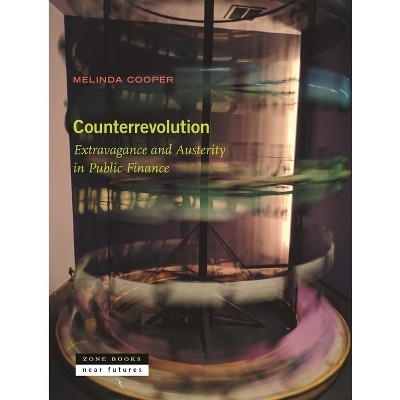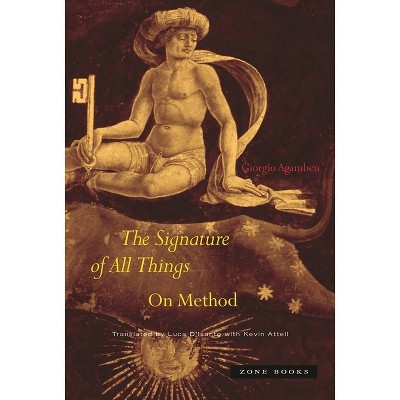Sponsored

Nongovernmental Politics - by Michel Feher & Gaëlle Krikorian & Yates McKee (Paperback)
In Stock
Sponsored
About this item
Highlights
- To be involved in politics without aspiring to govern, be governed by the best leaders, or abolish the institutions of government: such are the constraints that delineate the condition common to all practitioners of nongovernmental politics.
- About the Author: Michel Feher is a founding editor and publisher of Zone Books.
- 696 Pages
- Political Science,
Description
About the Book
The past, present, and future prospects of nongovernmental politics--political activism that withdraws from traditional government but not from the politics associated with governing.Book Synopsis
To be involved in politics without aspiring to govern, be governed by the best leaders, or abolish the institutions of government: such are the constraints that delineate the condition common to all practitioners of nongovernmental politics. What these activists seek to accomplish ranges considerably: providing humanitarian aid, protecting the environment, monitoring human-rights and civil-liberties violations, adding new entitlements to the list of fundamental rights and liberties, defending the interests of corporations' stakeholders -- workers, suppliers, consumers -- and expanding public access to knowledge are only the most frequent among their pursuits. Yet, heterogeneous concerns notwithstanding, what all involvements in nongovernmental politics have in common is that they are predicated on an intolerance for the effects of a particular set of governmental practices. In other words, the issue that specifically concerns nongovernmental activists is not who governs but how government is exercised.
Nongovernmental Politics offers a groundbreaking survey of the rapidly expanding domain of nongovernmental activism. The critical essays, profiles of NGOs, and interviews with prominent activists included in this volume attest to the diversity of nongovernmental politics but also to the common predicaments faced by its practitioners -- predicaments regarding their legitimacy, strategy, and grievances. This book first examines the various motives -- such as defending rights, providing care, supporting fair claims, facilitating access -- that nongovernmental activists invoke to justify and specify their modes of intervention. It then successively analyzes the ways in which nongovernmental agencies construct their credibility and publicize their cause, and explores some sites, such as borders and disaster zones, which have a particular significance for nongovernmental work. Finally, Nongovernmental Politics focuses on the competing designs -- wresting civil society from the control of an unaccountable state, shaking the global dominance of corporate interests, hastening the return of the Savior, restoring the order prescribed by the Prophet -- that currently preside over the endeavors of nongovernmental activists.Review Quotes
It is a tribute to Nongovernmental Politics that, while keeping their focus on the urgency of action, its contributors...insist over and over on how claims to disinterestedness are shot through with interests and inextricably political. The point is both to enrich and to displace what we understand by neutrality.
--Radical PhilosophyMorality can't tell political actors what to do. Only politics can do that. The difficulty this poses for anyone who wishes that politics might be done differently, and better, is a theme that unites many of the contributors to Non-Governmental Politics. In his excellent introduction, Michel Feher spells out some of the tensions inherent in the idea that politics is failing many of the world's neediest inhabitants, and yet it is only politics that can rescue them.
--London Review of BooksNongovernmental Politics...is a huge and intellectually sprawling volume, physically large enough to serve as a doorstop or even to be used in self-defense against pointed weapons...The authors of the forty-seven contributions here are diverse--a few are university scholars, a good many are activists, some are staff to NGOs and international agencies, several are graduate students. They are predominantly European, with a strong French inflection (doubtless due to Feher's influence). They reflect as well as anything I have read the range of ambitions and anxieties in the growing NGO movement, although of course they are all committed to some version of the notion that we must find new modes of responding to the inadequacies of formal politics through other means. The term "nongovernmental politics" sounds like an oxymoron, but this interesting volume shows why it is not.
--Common KnowledgeAbout the Author
Michel Feher is a founding editor and publisher of Zone Books. He is the author of Powerless by Design: The Age of the International Community and the editor of Fragments for a History of The Human Body (with Ramona Naddaff and Nadia Tazi).











